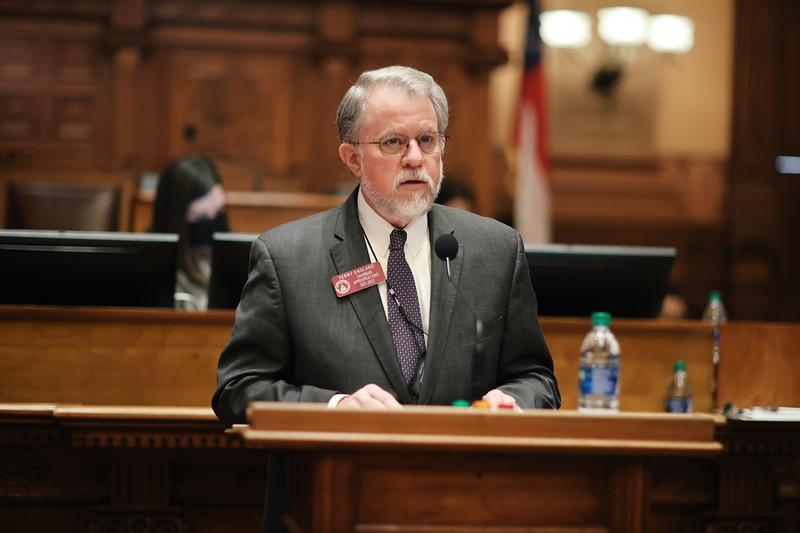
Caption
State Rep. Terry England, chair of the House Appropriations Committee, took the lead in passing the annual budget for the fiscal year that starts July 1, along with other historic legislation the governor signed into law this year.
Credit: Georgia House of Representatives photo

